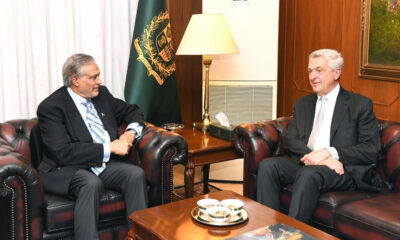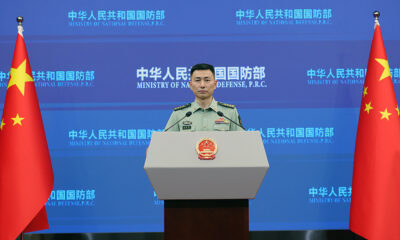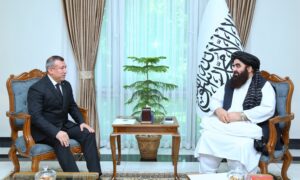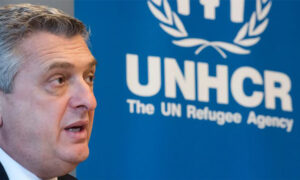Latest News
EU, US condemn IEA’s decision barring females from working in NGOs
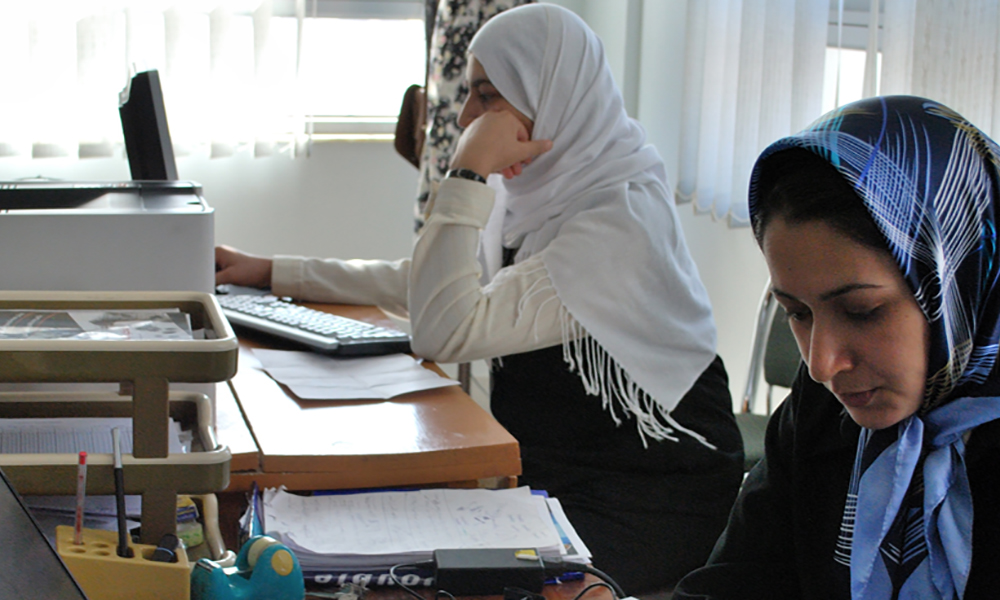
The Islamic Emirate of Afghanistan (IEA) has ordered all national and international NGOs to stop their female employees from working, citing “serious complaints” about their dress code.
The order, issued by the Ministry of Economy, threatened to suspend the operating licences of NGOs that failed to implement the directive.
“There have been serious complaints regarding the non-observance of the Islamic hijab and other rules and regulations pertaining to the work of females in national and international organisations,” said a statement sent to all NGOs.
“The ministry of economy… instructs all organisations to stop females from working until further notice,” the statement said.
“In case of ignoring the directive, the license of the organisation which has been issued by this ministry, will be cancelled,” it added.
The latest restriction comes less than a week after the IEA authorities suspended university education for women, prompting global outrage and protests.
The EU strongly condemned the IEA’s ban on women working for NGOs in Afghanistan and said it was assessing the impact on its aid to the country.
“We are assessing the situation and the impact it will have on our aid on the ground,” an EU spokesperson told AFP in a statement.
The EU is a major supporter of aid organisations that work in Afghanistan. However it does not recognize IEA as the country’s official government.
EU foreign policy chief’s spokeswoman Nabila Massrali said: “Our foremost concern will continue to be the welfare, rights, and freedoms of the people of Afghanistan.”
She said the ban on women working for NGOs “is another harsh restriction on the ability of women in Afghanistan to exercise their human rights and fundamental freedoms and a clear breach of humanitarian principles”.
US Secretary of State Antony Blinken also warned that an IEA order for women to be barred from working for NGOs would disrupt aid delivery and could be “devastating” for Afghanistan.
“Deeply concerned that the Taliban’s (IEA) ban on women delivering humanitarian aid in Afghanistan will disrupt vital and life-saving assistance to millions,” Blinken tweeted.
“This decision could be devastating for the Afghan people.”
Dozens of national and international NGOs continue to work in several sectors across remote areas of Afghanistan, and many of their employees are women.
It was not immediately clear whether the order applied to United Nations agencies, which have a large presence in Afghanistan and often deal with NGOs registered there to carry out their humanitarian work.
Economy Ministry’s spokesperson, Abdulrahman Habib, said the letter, banning women’s work, applied to organisations under Afghanistan’s coordinating body for humanitarian organisations, known as ACBAR. That body does not include the UN, but includes over 180 local and international NGOs.
Top officials from the United Nations and dozens of NGOs operating in Afghanistan are meeting in Kabul Sunday to discuss the way ahead after the IEA authorities ordered all NGOs to stop women employees from working, aid officials said.
“A meeting of Humanitarian Country Team (HCT) is scheduled later today to consult and discuss how to tackle this issue,” Tapiwa Gomo, public information officer for the UN Office for the Coordination of Humanitarian Affairs, told AFP.
The HCT comprises top UN officials and representatives of dozens of Afghan and international NGOs who coordinate distribution of aid across the country.
The meeting will discuss whether to suspend all aid work following the latest IEA directive, some NGO officials said.
The United Nations, which said it would seek an explanation from the IEA about the order, condemned the ministry’s directive.
The ban comes at a time when millions across the country depend on humanitarian aid provided by international donors through a vast network of NGOs.
Meanwhile, the Deputy Prime Minister for Economic Affairs, Mullah Abdul Ghani Baradar Akhund, at an event in Kabul under the title of “Waiver of Tax Penalties, Supporting Industry and Trade”, said that IEA considers itself responsible towards the people of the country.
“The Islamic Emirate of Afghanistan is responsible towards the people including businessmen and industrialists, so it is necessary to provide them with facilities in every area and protect their property and dignity,” Baradar said.
Speaking in the event, Foreign Minister Amir Khan Muttaqi said that the government is responsible for the health, economy, education and other legal rights of the citizens.
“When we call ourselves rulers, then we are also responsible for the health, economy, education and other rights of the people. We made a lot of efforts to establish the Islamic system. Many problems have been solved and many more problems remain for which we must soon find solutions,” Muttaqi said.
Latest News
US Congress to hold meeting to review situation of Afghan women

The U.S. Congressional Human Rights Commission said in a statement it will hold a meeting on Tuesday this week to review the situation of Afghan women.
This meeting will be held on Tuesday next week with the presence of Rina Amiri, the US special representative for Afghan women’s affairs, Heather Barr, director of the Women’s Rights Division at Human Rights Watch and a number of other Afghan women.
Based on the statement of the commission, the participants of this meeting will review the human rights issues including the situation of women and girls in Afghanistan and provide recommendations for the action of the US Congress.
“Since August 2021, the situation of Afghan women and girls has significantly worsened. A growing list of severe restrictions imposed by the Taliban has severely reduced women’s ability to participate in public life,” the statement read.
This commission also pointed to the prohibition of women from work and denial of access to education, adding that the control over women’s private lives has increased.
Meanwhile, the Islamic Emirate has always rejected concerns about the violation of women’s rights in Afghanistan and emphasized that it is committed to respecting women’s rights in accordance with Islamic Sharia.
Latest News
Pakistan and Turkmenistan agree to fast-track gas pipeline project involving Afghanistan and India
The Turkmenistan-Afghanistan-Pakistan-India (TAPI) pipeline will originate from Galkynysh, the world’s second-biggest gas field, and end at the Indian city of Fazilka near the Pakistan border.
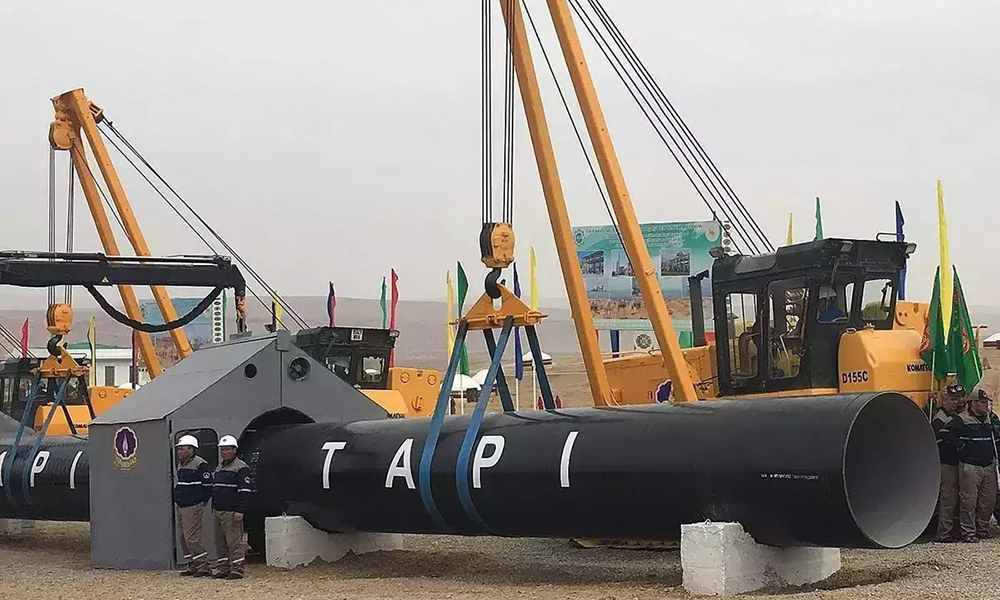
Pakistan and Turkmenistan agreed on Wednesday to fast-track a major pipeline project that will allow the Central Asian state to supply natural gas to Pakistan and India via Afghanistan, thereby enhancing economic activity across the region and benefiting all involved countries.
The understanding between the two states was reached during a meeting between Federal Minister for Petroleum Dr. Musadik Malik and Turkmenistan’s Foreign Affairs Rasit Meredow who arrived on a two-day visit to Islamabad on Tuesday.
The Turkmenistan-Afghanistan-Pakistan-India (TAPI) pipeline will originate from Galkynysh, the world’s second-biggest gas field, and end at the Indian city of Fazilka near the Pakistan border.
If the project is implemented, it will help Turkmenistan supply about 33 billion cubic meters (bcm) of natural gas each year along a route covering a distance of over 1,800 kilometers.
According to an official statement released by the Ministry of Energy’s Petroleum Division, Pakistan and Turkmenistan are working to “expedite” the pipeline project.
“TAPI pipeline project will lower energy costs, which can boost industrial growth, create jobs and foster economic development,” it quoted Pakistan’s petroleum minister as saying during the meeting. “Reliable and affordable energy supplies are vital for industrial sectors and overall economic stability.”
“This project, aimed at fostering economic integration and energy security, has witnessed substantial progress through collaborative efforts,” he continued, stressing the importance of continued engagement between the two countries.
Malik added Pakistan was fully committed to the project which was vital for regional energy cooperation and infrastructure development.
The visiting dignitary expressed appreciation for the warm welcome extended to his delegation by the Pakistani authorities.
“Together we will chalk out a roadmap for cooperation between both countries,” he added.
The meeting was also attended by the CEO of TAPI Pipeline Company Limited.
Other participants of the meeting emphasized the project’s strategic importance in enhancing regional connectivity, promoting economic growth and meeting the energy demands of participating nations.
The TAPI project was envisaged in the early 1990s and officially agreed upon in December 2010.
It has primarily been delayed due to security concerns, geopolitical tensions, funding challenges and bureaucratic hurdles.
Related Stories:
Acting FM discusses TAPI project with Turkmenistan’s envoy in Kabul
Latest News
Pakistan, UNHCR agree on lasting solutions for afghan refugees
The recent attacks and violent demonstrations by Afghani diaspora against Pakistan’s Diplomatic Missions in Frankfurt, London and Brussels also came under discussion, Radio Pakistan reported.
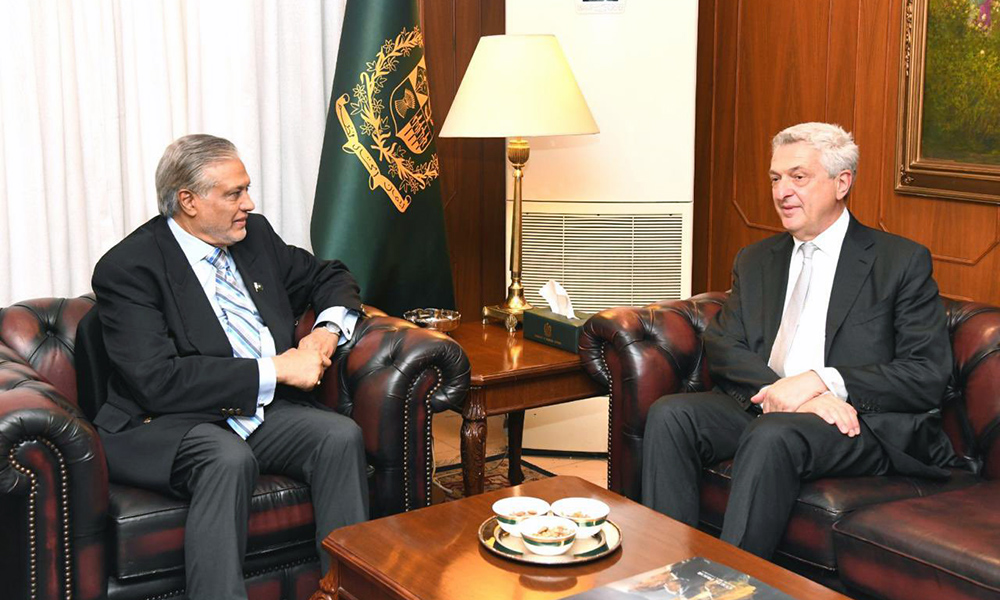
Pakistan’s Deputy Prime Minister and Foreign Minister Mohammad Ishaq Dar on Friday held a telephonic conversation with the United Nations High Commissioner for Refugees Filippo Grandi.
They discussed matters related to Pakistan-UNHCR cooperation.
The recent attacks and violent demonstrations by Afghani diaspora against Pakistan’s Diplomatic Missions in Frankfurt, London and Brussels also came under discussion, Radio Pakistan reported.
The High Commissioner appreciated Pakistan’s traditional hospitality towards Afghan refugees, in particular the recent decision by the Government of Pakistan to extend the validity of Proof of Registration Card.
Deputy Prime Minister and Foreign Minister and the High Commissioner agreed to continue to work together to advance Pakistan-UNHCR cooperation and find lasting solution to the issue of Afghan refugees, read the report.
This comes after the Ministry of Refugees and Repatriation of Afghanistan has announced that Pakistan has extended the POR (Proof of Registration) cards for Afghan refugees for another year.
On Thursday, July 25th, the Ministry reported on X that the Afghan Commissioner for Refugees in Islamabad confirmed the extension of POR cards for Afghan refugees residing in Pakistan. The new validity of these cards is from June 1, 2024, to June 30, 2025.
This extension comes amid rising tensions as the Pakistani government has been deporting over two thousand individuals daily. Despite the extension, Afghan refugees holding POR cards are increasingly concerned about the possibility of forced deportation to Afghanistan.
Related Stories:
Longer-term solutions needed for issue of Afghan refugees in Pakistan: UNHCR chief
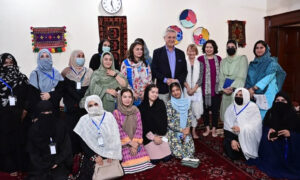
UNHCR chief discusses Afghan refugee issue with Pakistan’s deputy PM
-

 Sport4 days ago
Sport4 days agoOlympics finally here; What you need to know
-

 Latest News5 days ago
Latest News5 days agoOCHA reports 110 die in landmine explosions in Afghanistan every month
-

 Regional5 days ago
Regional5 days agoChina braces for twin tropical cyclones after deadly flash floods
-

 World5 days ago
World5 days agoBiden ends failing reelection campaign, backs Harris as nominee
-

 Health4 days ago
Health4 days agoHealth partners provide services 589,205 people in Afghanistan in last month
-

 Latest News4 days ago
Latest News4 days agoAfghanistan’s Hajj ministry confirms death of 27 pilgrims in Mecca and Medina
-

 Business5 days ago
Business5 days agoConference on Islamic microfinance kicks off in Kabul
-

 Sport4 days ago
Sport4 days agoACB proposes ODI fixtures against top-tiered teams










